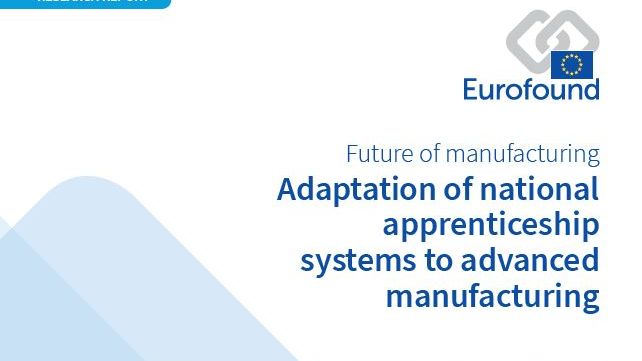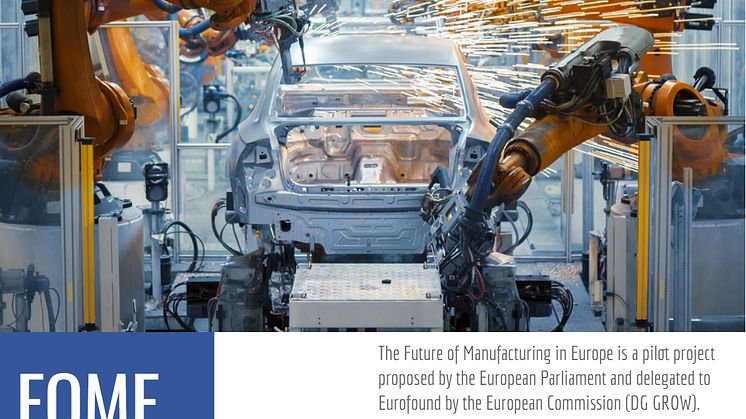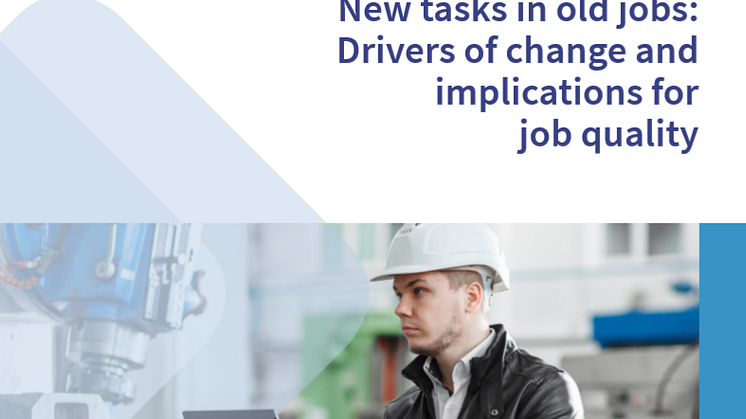
News -
Are apprenticeships keeping up with changes in manufacturing?
Apprenticeships are long established in manufacturing and are attractive for both employers and young people because of the balance between theoretical and practical education that they offer. However, in several countries in Europe and beyond, apprenticeships are lagging behind changes in manufacturing, and the potential of quality apprenticeships for both industry and the labour market are not being fully capitalised on.
The new report on Adaptation of national apprenticeship systems to advanced manufacturing from the Future of Manufacturing in Europe (FOME) project looks at apprenticeship systems and practices in the manufacturing sector in five EU Member States (Denmark, France, Germany, Ireland and Italy) and two countries outside Europe (Australia and the USA). It shows that all seven countries have public industrial policy initiatives aimed at fostering advanced manufacturing, but the link between these initiatives and initial vocational education and training (IVET) and apprenticeship policies and practices is relatively weak. Only in Germany and Denmark has a comprehensive approach to modernising and adjusting apprenticeship training been developed in response to new skills requirements.
Denmark and Germany are also the only countries where apprenticeship is the only or most widespread form of IVET. The systems there are characterised by a strong involvement of social partners in governance and the modernisation of occupations and training practice. Outside of Europe, in Australia and the USA, only limited numbers of occupational programmes and respective apprenticeship programmes are available, and there has been a weak form of social partner involvement, often centering primarily on input from employers. The report also shows that a lack of formally recognised national apprenticeship qualifications in Italy and the USA limits the possibility to significantly modernise apprenticeships to take account of industry changes.
Apprenticeships remain attractive for employers due to their emphasis on practical training, and is preferred by young people who thrive more in hands-on than academic learning environments. Apprenticeship training should be regarded as an integral part of modern industrial policy, and to be successful industrial policies fostering the transition to advanced manufacturing and implementing Industry 4.0 require a complementary strategy of Apprenticeship 4.0. National governments should seek the active involvement of sectoral social partners and IVET institutions in the design and implementation of industrial policies.
Europe has already played an important role in the development of apprenticeship training and industrial policy, with the adoption of a Council Recommendation establishing a European Framework for Quality and Effective Apprenticeships, as well as broader commitments to training and lifelong learning laid out in the European Pillar of Social Rights. More can still be done however, including further initiatives to more actively involve relevant social partners and IVET institutions in industrial policy dialogue.
Ensuring that future workers, primarily young people, have the most appropriate and relevant training they need, including via IVET and apprenticeships, is vital in order to fully develop Industry 4.0 for economic, social and employment dividends. Close cooperation between the EU, national governments, social partners, and educational institutions is essential and, given the pace of technological change and its impact on industry, will become even more important in the future.
Download the report here
Notes to the Editor
This report was released under the Future of Manufacturing in Europe (FOME) project, which was proposed by the European Parliament and delegated to Eurofound by the European Commission (DG Grow).
Read more about the project and its activities here.



